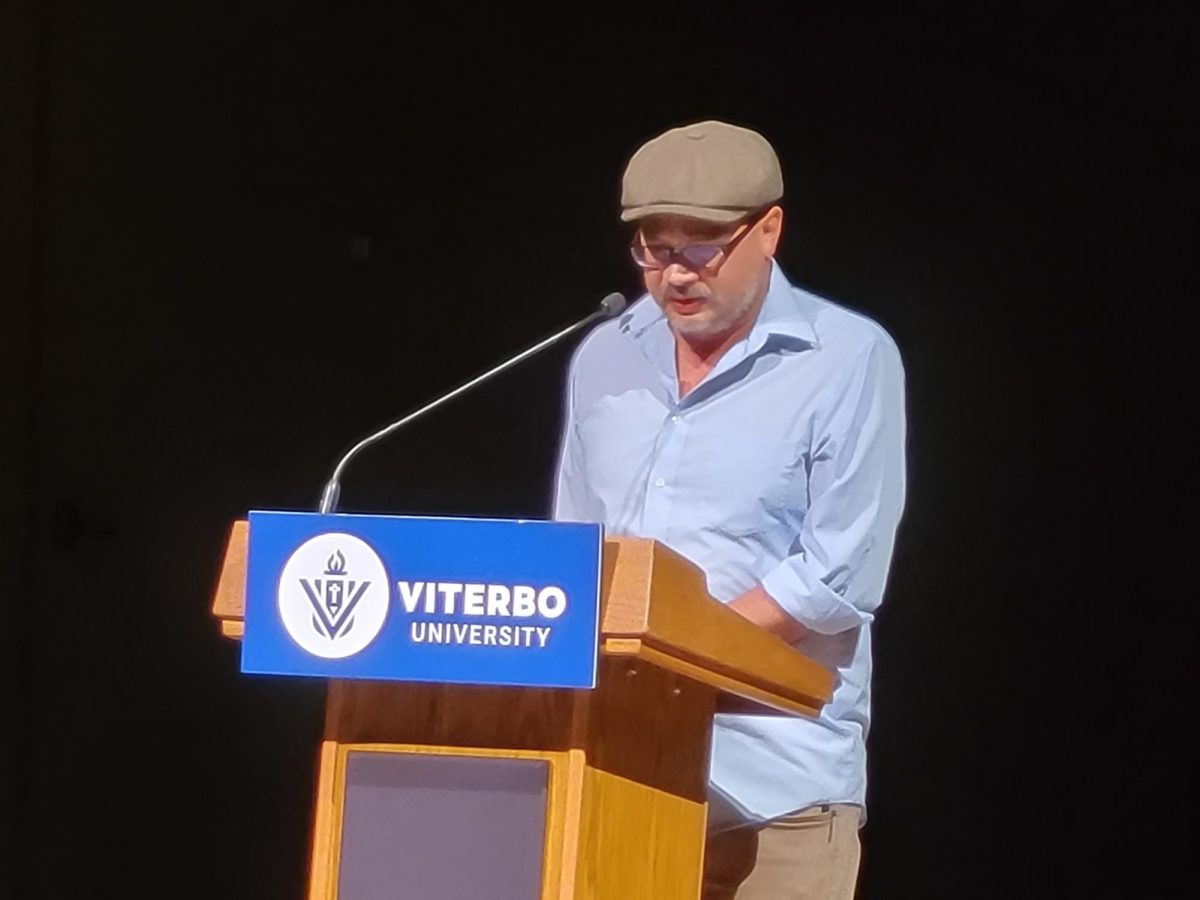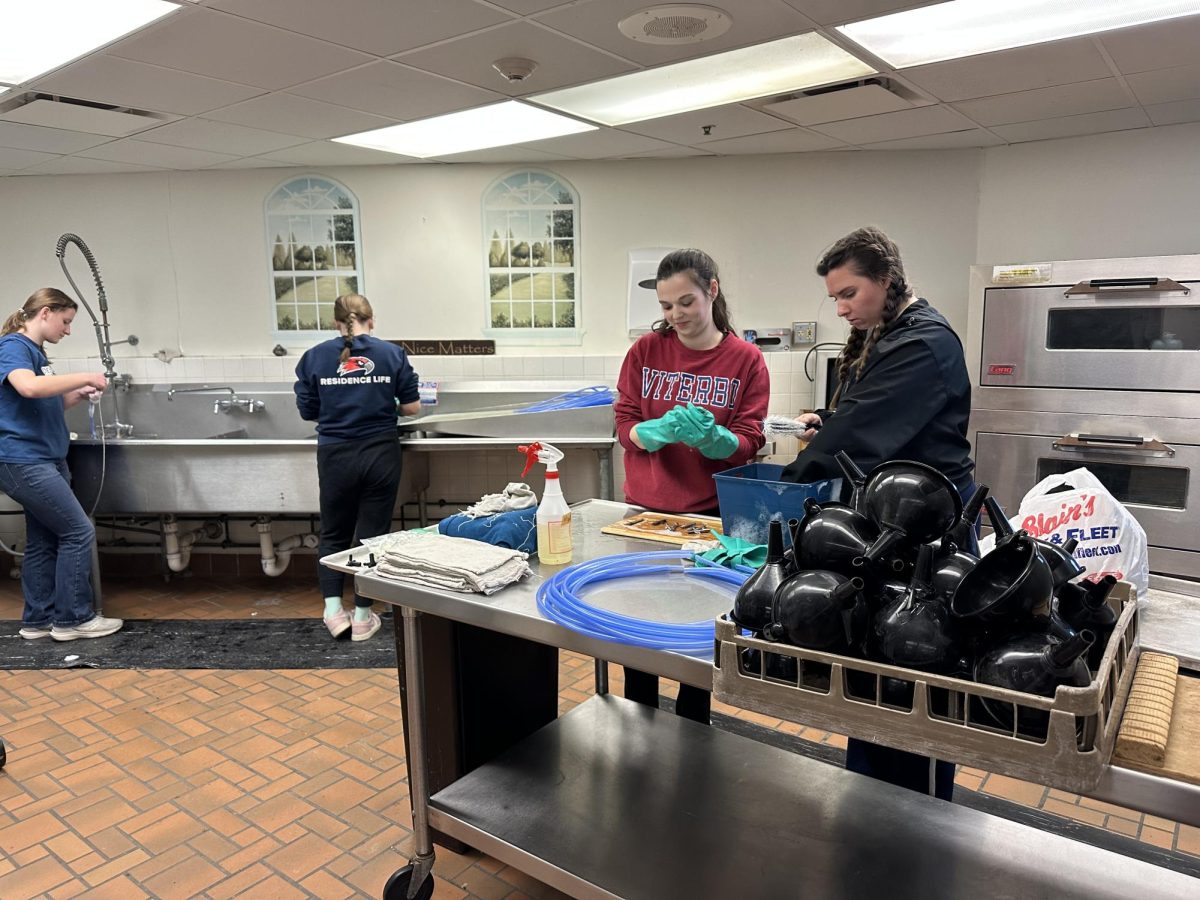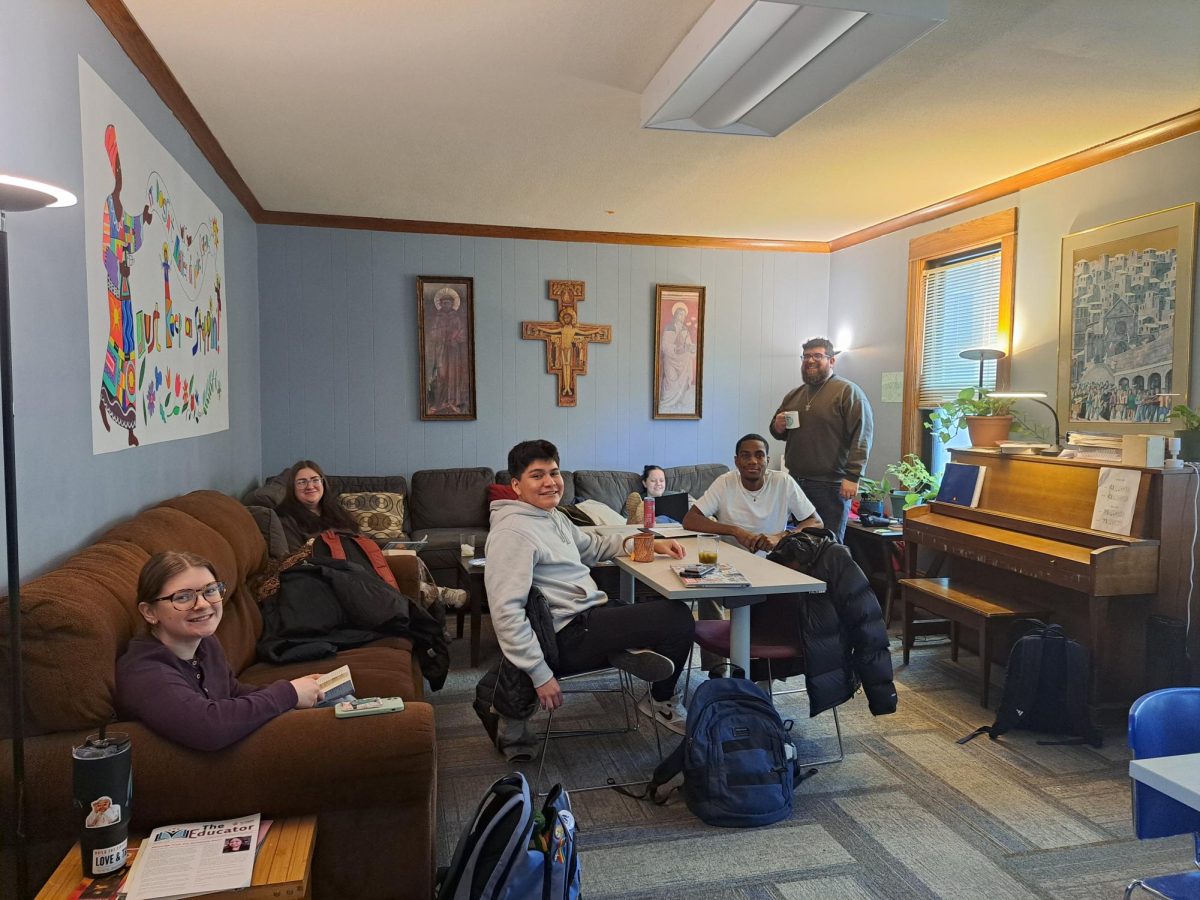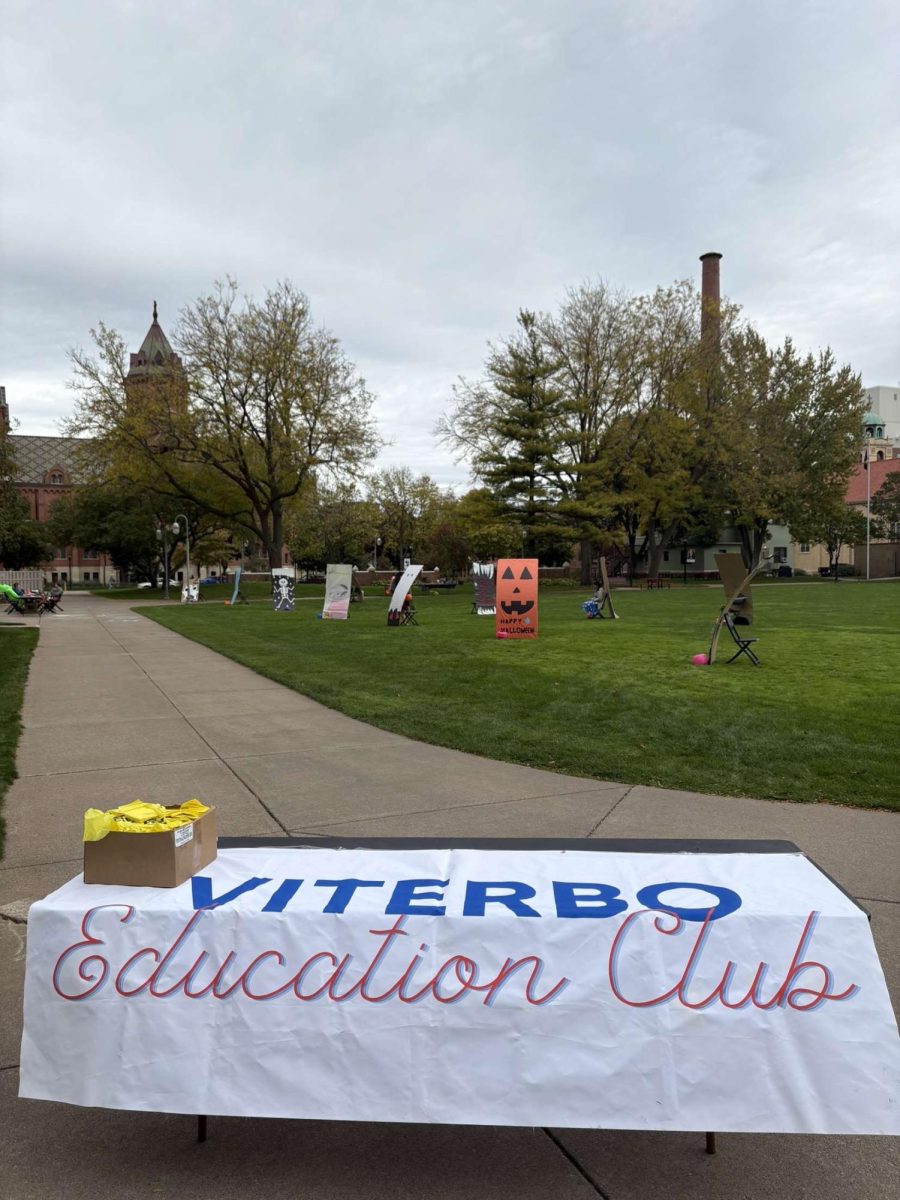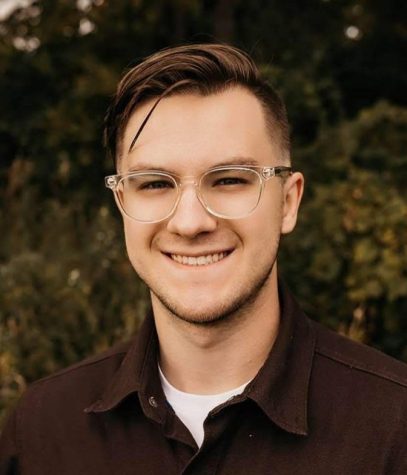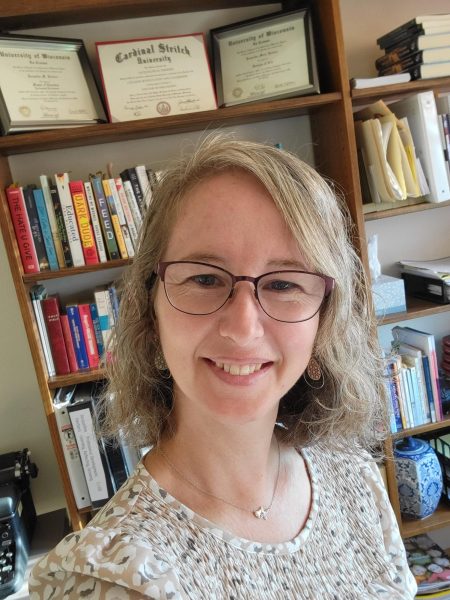On Oct. 5 2023, Nicholas Gulig, the Poet Laureate of Wisconsin visited Viterbo University to give a reading in Starling Recital Hall in the Fine Arts Center. Gulig read excerpts from several of his published works, with the addition of a few sneak peeks of works in- progress. Earlier in the day, Gulig met with Viterbo’s Honors program students to provide a workshop craft talk on poetics and socialize during a reception.
Gulig is an associate professor at the University of Wisconsin-Whitewater, while also balancing being a father and Wisconsin’s Poet Laureate. The responsibilities of being a professor and father might be more easily understood than those of being Poet Laureate. In fact, before Gulig’s visit, many may not have heard of the position at all. The position is defined as, “the state’s leading voice for poetry, promoting it through publication, performance, education, workshops, along with digital and social media.”
The leading voice is more than only occasionally speaking or making a post on social media. At both the workshop and his reading Gulig noted how often he is away from home traveling to speak at different places. The description of the Poet Laureate’s responsibilities notes, “The position is more an, ‘activist’ than an ‘honorary’ one, which means that Wisconsin’s Poet Laureate strives to enrich the lives of Wisconsin residents by sharing the values of poetry, creativity, and artistic expression across the state.”
Behind the Poet Laureate is the Poet Laureate Commission and the Wisconsin Academy of Sciences, Arts, and Letters. Some of the responsibilities they oversee are reviewing new applications, setting expectations for the position, and helping allocate support for the Poet Laureate. The Poet Laureate role in the state was founded in 2000 through executive order by former Gov. Tommy Thompson, which ensured the position received an annual budget of $2,000 to assist with costs such as travel. This lasted for many years until Gov. Scott Walker eliminated the annual budget. Because of this change, the Wisconsin Academy of Sciences, Arts, and Letters took oversight of the laureateship to prevent it from disappearing completely.
Despite a brief period of uncertainty, the position survived, allowing poets like Gulig to share their knowledge. During the workshop, Guilg presented in the Murphy Center, he discussed the craft of poetry itself. Specifically, he focused on an approach to poetry using a concept known as negative capability. Negative capability was first used by John Keats in one of his letters. Keats refers to it as, “when man is capable of being in uncertainties, mysteries, doubts without any irritable reaching after fact and reason.”
Gulig’s craft talk was well attended, but his reading drew even more attention. The recital hall was practically full by the time the reading started, with even more people filing in after the doors closed. Gulig was introduced by Viterbo’s Assistant Professor of English Vincent James who was, “inspired to see such a strong turnout in celebration of Dr. Gulig’s poetry.” Gulig read from several of his works including his book “Orient.” Following the reading, Gulig opened the floor for audience members to ask questions and shared about his life as a poet.
